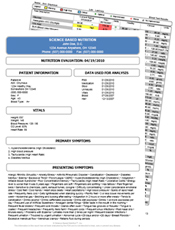HISTORY OF ASPIRIN
After learning about the adverse side effects linked to prescription painkillers Vioxx, Celebrex and Bextra, patients have begun turning to over-the-counter drugs in hopes of finding a safer option. One alternative many seem to be opting for aspirin.
The interest in aspirin has been so high that the nation’s No. 1 online pharmacy, Drugstore.com, has seen close to a 15 percent increase in aspirin sales — more than would typically have been expected in recent months (though it is too early to draw conclusions as to exactly why that’s happening).
Aspirin is regarded as one of the oldest, most trusted painkillers of all. In fact, it has been around for so long — more than 100 years — that it never went through the stringent tests today’s drugs must go through in order to become non-prescription.
With more than 100 billion tablets of aspirin consumed worldwide each year, aspirin is used to treat inflammation and pain associated with: Headaches, toothaches, minor arthritis, muscle or soft tissue injuries. However, reliance on this over-the-counter drug may result in serious health problems including gastrointestinal bleeding and stomach irritation. And while MD’s may offer aspirin for the occasional headache or minor pain, doctors do not recommend it for chronic pain sufferers, as it may potentially increase health risks.
One pharmacist (and senior editor for Harvard Health Publications) offered a word of caution pertaining to the safety of aspirin and other over-the-counter pain relievers: “My guess is that if aspirin was launched in 2004, it would not be an over-the-counter drug. People have the misunderstanding that if you can simply buy without a prescription, that it is completely safe to use. But every drug has side effects.” Indeed they do. –USA TODAY (January 14th, 2005)
GET THE FACTS
Over 10 percent of patients who take low-dose aspirin to ward off a heart attack develop peptic ulcers, which often have no symptoms. Researchers from the University of Western Sydney in Australia used endoscopy and they studied 187 patients who had been taking between 75 milligrams and 325 milligrams of aspirin daily for at least one month.
The researchers found that 10.7 percent of patients in their study developed ulcers at least 3 millimeters in diameter. However, only 20 percent experienced symptoms that were significantly different from patients with no ulcers, which means many people may not know the ulcers exist. After three months, the endoscopy was repeated among the 113 people who did not have ulcers when the study began. It was found that: Over 7 % had developed an ulcer during this period and boosted the annual ulcer rate to 28 percent! The researchers said the benefits of using aspirin should be carefully assessed before those who have low cardiovascular risk take it for a long period of time.
Aspirin has developed a reputation in conventional medical circles for being a useful approach for lowering the risk of heart disease — just take one a day to prevent heart attack or stroke.
Aspirin is in fact a drug!
Once you understand natural medical principles it is easy to see that any drug is not the solution for a chronic degenerative disease. Although it may seem to provide some initial benefit, the long-term overall view is rarely appreciated, as it nearly invariably shows a combination of side effects that far outweighs any benefit.
The case of Vioxx is quite clear. Tens of thousands of people around the world paid the price with their lives for choosing some temporary pain relief in exchange for a fatal heart attack.
In the case of aspirin, if you read the studies by British and American researchers, you will see that taking aspirin can cause much more harm than good.
The chance of developing ulcers is just one potential side effect. Others include: Increasing your risk of pancreatic cancer, kidney damage and gastric bleeding. – British Medical Journal 05/20/05
Attention [city] area women, you may have increased risk of Pancreatic Cancer!
Women who take aspirin regularly may be at an increased risk of pancreatic cancer, a particularly deadly form of cancer. Researchers found that taking two or more aspirins a week for 20 years or more increased the women’s risk of pancreatic cancer by 58 percent, and women who took 14 tablets or more per week had an 86 percent greater risk. Millions of women take aspirin daily in order to protect against heart disease and to treat aches and pains. Women in the study who took between six and 13 aspirins a week had a 41 percent higher risk than women who did not use any, compared with an 11 percent greater risk among women who took one to three aspirins a week.
Although pancreatic cancer affects only 31,000 Americans a year, most patients die within three years.
The cause behind pancreatic cancer remains unknown, however a previous study found that taking aspirin regularly may cause an inflammation of the pancreas known as pancreatitis, which sometimes leads to pancreatic cancer. –USA Today 10/28/03
HEART TROUBLE
Taking low dose aspirin as a preventive measure against coronary heart disease, which is a very common practice, may actually cause more harm than good, according to a just published study.
British researchers identified over 5,000 UK men, aged between 45 and 69 years, who were at increased risk of coronary heart disease but had not previously had heart trouble. The men were randomly divided into four different treatment groups to accurately establish the effect of aspirin.
The authors found a greater beneficial effect of aspirin in men with low rather than high blood pressures, not only for coronary heart disease but also for stroke, although the modest benefit does not necessarily outweigh the risk of bleeding. Men with higher pressures may derive no protective benefit from aspirin but will risk possible serious bleeding.
Given the widespread use of aspirin for the prevention of coronary heart disease, the study’s authors suggest that these findings have important implications, although they admit that further trials are needed to confirm the results.
Because of the strong correlation between blood pressure found in this study, the authors also stress the importance of adequately controlling blood pressure for those in whom the preventive use of aspirin is being considered. In addition, men who have previously had heart trouble and strokes and are taking aspirin should continue to do so, unless instructed otherwise, since they are more likely to obtain a greater benefit than the general population. – British Medical Journal June 25, 2000; 321: 13-17.
ALTERNATIVES
So what are the best alternatives to aspirin? Simple lifestyle changes such as taking fish oil and exercising can have a tremendously positive effect on your cardiovascular system. Biofreeze is a deep penetrating, long lasting gel/spray for the relief from arthritis, sore muscles and joints, and back pain. Formula 303 is a natural relaxant for relief of muscle spasm, tension and stress. Inflavanoid is a natural supplement for the relief of minor pain & inflammation.
While all of these are natural pain relievers that may be used to substitute Aspirin, it is important for you to know WHY your body is requiring a pain reliever or anti-inflammatory in the first place. Why isn’t your body healing and repairing as it should? What’s the difference now than before the pain and inflammation started?
A complete nutritional blood analysis is the key to understanding your body’s chemistry and is necessary to provide a better picture of your overall health. Diet, Vitamin and Mineral recommendations based upon bloodwork will help you reach your optimal health. Call our [city] office today.

